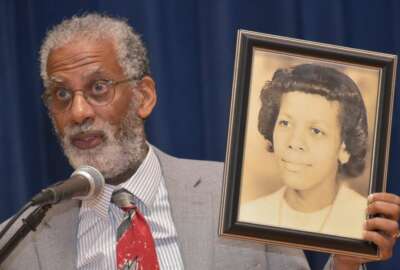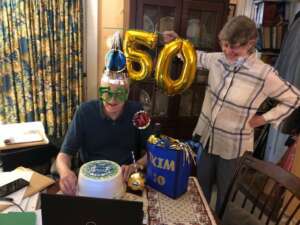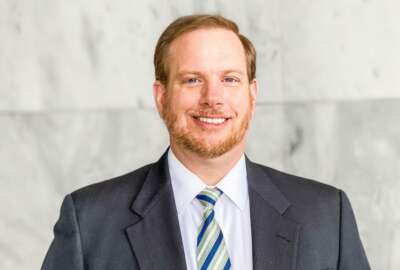
Ever-evolving challenges keep EXIM Bank leader at the agency for 50 years and counting
Throughout a 50-year career at the Export-Import Bank, Jim Cruse, a senior vice president of policy analysis and international relations, has seen the agency...
When Jim Cruse first joined the Export-Import Bank as a young economist in 1970, the agency looked and felt different than it does today.
The bank at the time was “club-y,” but friendly and professional, he said. The men wore coats and ties, and the few women who worked at the bank weren’t allowed to wear pants.
“One of the first weeks I was there I was given a machine about the size of one of the largest old typewriters you might have ever seen. It was actually a calculator. Literally, it was about two-feet across, about a foot high and about 18-inches deep,” Cruse said in an interview. “Twenty or 30 seconds later you’d get an answer. That was how we did calculations at that time, unless you wanted to do it by hand.”
Cruse, who now serves as the bank’s senior vice president of policy analysis and international relations, has since traded the mammoth calculator for a laptop and virtual collaboration software.
He’s been at the Export-Import Bank for 50 years, and he has no immediate plans to retire.
Over the course of a five-decade career, Cruse has seen the bank’s influence expand and wane as domestic and international policies and political priorities have shifted.
He was a part of the creation of a logical role for export credit agencies after the collapse of the Bretton Woods fixed exchange rate system, as well as 30 years of Organization for Economic Cooperation and Development (OECD) negotiations.
Cruse has also seen the agency through a few reorganizations, and he’s watched the bank’s workforce become more diverse.
“Today women make up the majority of the professional staff. They make up a good half or more of the senior management. They are integral to the whole institution, are in fact a predominant influence. Minorities and others have a much more significant role,” he said. “That changes the internal culture for the better and is something that is particularly beneficial to policy.”
Though Cruse never envisioned he would stay at the bank for five decades, the day-to-day and long-term challenges of the job have kept him engaged.
“It did not stay the same. The nature of what I have done has constantly changed,” he said. “Even though we still do a competitiveness report as we have for 48 years, the nature of that report, the focus of that report and the process of that report has changed. And since my major interest and stimulus to work is responding to, ‘How do we do this? How do we get from point A to point B? We haven’t been down this road before; how do we do it?’ That’s what gets my juices going and gets me up in the morning. There’s always been two or three of those challenges out there.”

Last month, Cruse celebrated his 50th anniversary at the bank. What was supposed to be a typical senior staff call turned into a virtual anniversary party with many of his colleagues.
“It was a surprise of considerable proportions,” said Cruse, whose wife was in on the festivities.
Cruse said he’s going shift his focus over the next year from daily operations to long-term succession planning. He wants to help his colleagues build up their policy, international relations and negotiating chops.
“So if [in] the next year there’s nothing in the new dynamic that is particularly in need of Jim Cruse’s expertise, maybe I’ll move on, maybe I’ll find something else here that really needs my skill,” he said. “I don’t know. I just know that my focus will be on whatever the particular challenge is.”
With a workforce of about 400 people, Cruse sees the bank as a place where he and his co-workers can be heard by top agency leadership.
“Over my years, no matter whether I was a relatively new employee or the most senior employee, the chairman, etc., has always interacted with staff throughout the bank to deal with the issues of the day. You are directly related to reality,” he said. “For most people in government, it’s a feeling that they came to government to do. They wanted to make a difference. The bank, even though it’s now politicized and has less flexibility, it still is a place where no matter how short your career or how long your career, you have an opportunity to directly impact the reality around us and to make a difference.”
Copyright © 2025 Federal News Network. All rights reserved. This website is not intended for users located within the European Economic Area.
Nicole Ogrysko is a reporter for Federal News Network focusing on the federal workforce and federal pay and benefits.
Follow @nogryskoWFED





